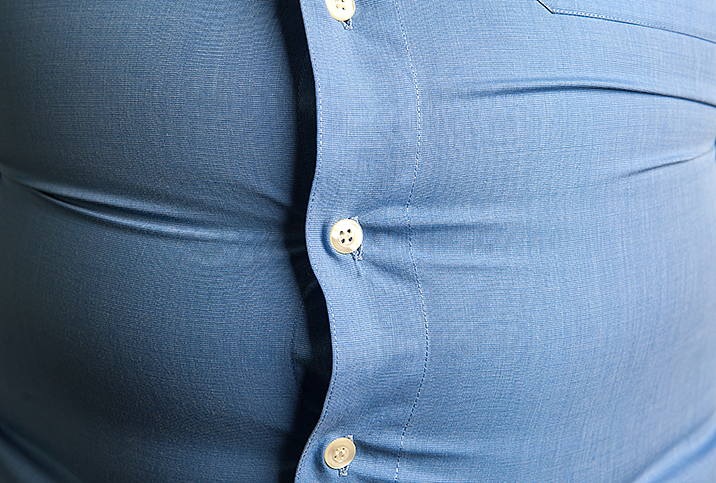Obesity: Myths & Misconceptions

More than 40 percent of American adults are obese based on the body mass index (BMI), according to the Centers for Disease Control and Prevention (CDC). BMI is calculated using a person's height and weight. Obesity, marked by excessive fat accumulation and a BMI of 30 or higher, presents serious health risks for both men and women.
Many myths and misconceptions exist regarding obesity, which is why we're here to dispel the most common ones using the facts with regard to obesity, losing weight, and the connection between obesity and sexual health.
Myth: Obesity has the same negative sexual impact on men as it does on women.
Reality: Obesity actually takes a greater toll on men. Men pay more of a price for being obese than women because it affects their hormones and prostate health, according to Harvard Men's Health Watch.
Men who are obese can expect to experience some of the following health effects at a higher rate than men who aren't obese:
- Erectile dysfunction
- Low testosterone
- Decreased fertility
- Higher incidence of prostate cancer
- Kidney stones
Myth: Losing weight will solve all your health problems.
Reality: While losing weight can benefit your overall health, it's not usually a cure-all and, done too quickly, can even cause health issues.
Weight loss can reduce your risk for diabetes, heart disease, stroke, sleep apnea and other diseases and conditions, but losing a lot of weight, especially rapidly, disrupts the body's energy systems and can actually cause health complications. Losing weight too fast has been associated with hormone disruption, metabolic complications and stress. Rapid weight loss can also lead to muscle loss, nutrient deficiencies, sleep issues and other problems.
Myth: To lose weight, you just need to eat less and exercise more.
Reality: While one of the best ways to reduce obesity is to lower caloric intake and increase physical exercise, other factors can play a role in developing obesity.
Factors that contribute to obesity include genetics and family history, lack of sleep, stress, hormone disruptions and certain medications. Overeating could also be a symptom of stress, for example. Because there's a stigma attached to being obese, this can cause stress and depression for some people, therefore upping their stress levels and causing a vicious cycle of eating more to cope with these emotions.
Myth: Exercising is better than dieting.
Reality: There have been many studies indicating that exercise alone, despite its many health benefits, typically results in only modest weight loss, and that diet is more important than exercise when it comes to losing weight. All the calories you take in come from the food and beverages you consume, but exercise accounts for only some of the calories you burn.
Exercise, especially prolonged endurance exercise and weightlifting, can also increase your appetite, which can often sabotage the best of intentions. For example, a 185-pound individual will burn 200 calories from 30 minutes of walking at a moderate pace, which could then easily be undone by eating four cookies.
Myth: Having sex burns a lot of calories.
Reality: Sex does burn calories, but not usually as many as moderate exercise. You often see claims that having sex burns between 100 and 300 calories. However, a 1984 study found that sex lasted just six minutes, on average, and burned a mere 21 calories. This is about the same number of calories burned by walking for the same amount of time. Also, the study did not take into account how many calories women burn during sex, which is generally fewer than men.
A more recent study from the University of Quebec at Montreal found that men burned 101 calories during a 24-minute sex session, and women burned about 69 calories. Running for that period of time could burn up to five times that amount.
These are just a few of the mistruths regarding obesity and weight loss. After learning what the facts and research say about obesity, hopefully, you will be able to approach weight loss and your overall health with a greater understanding.
















